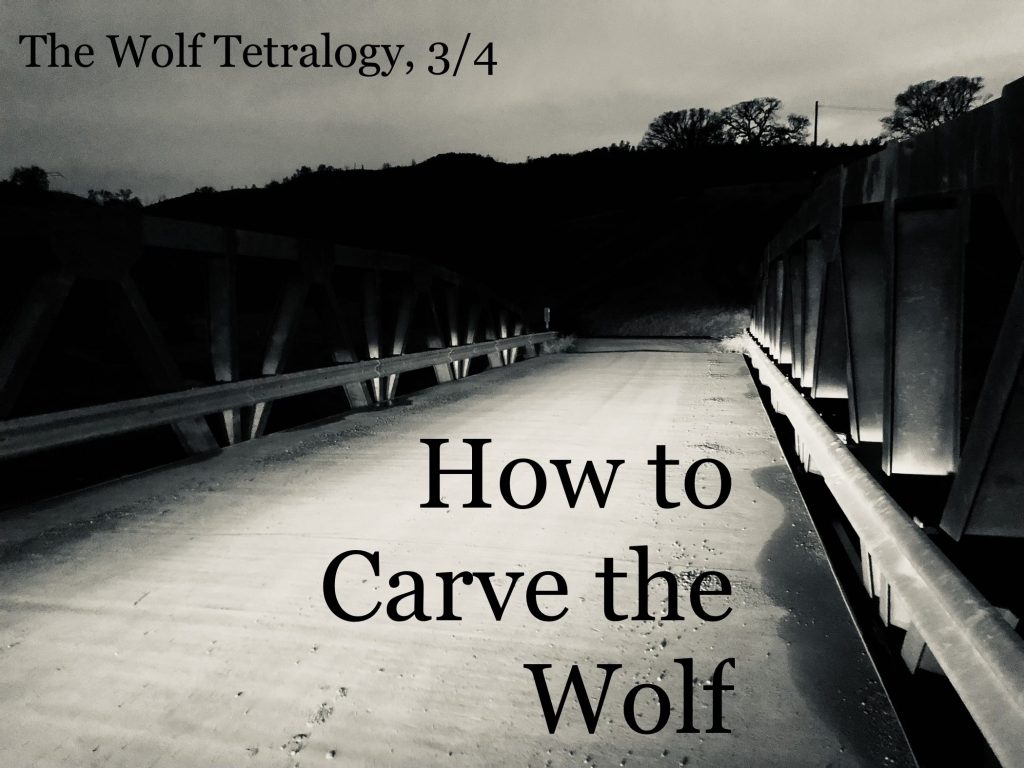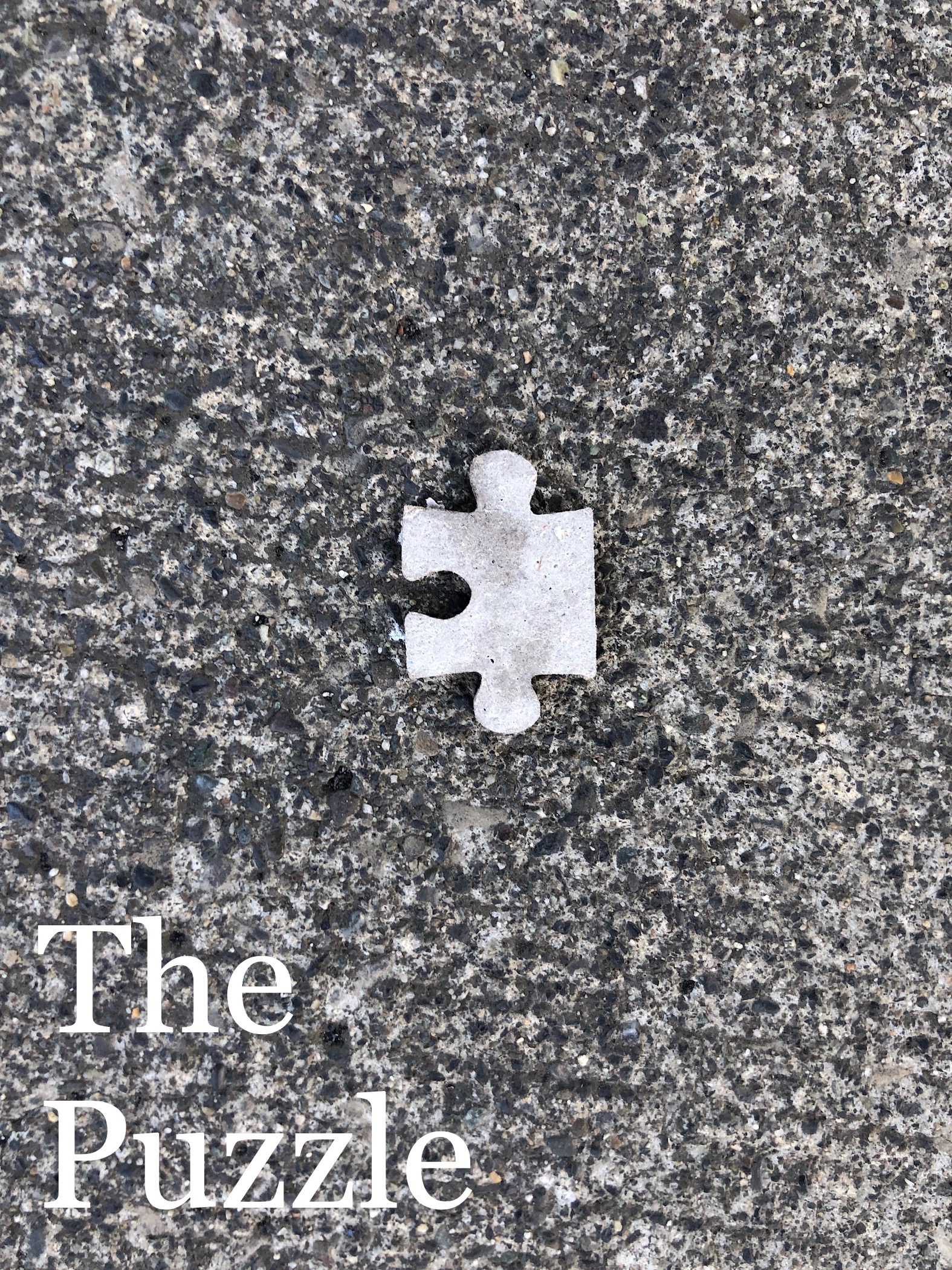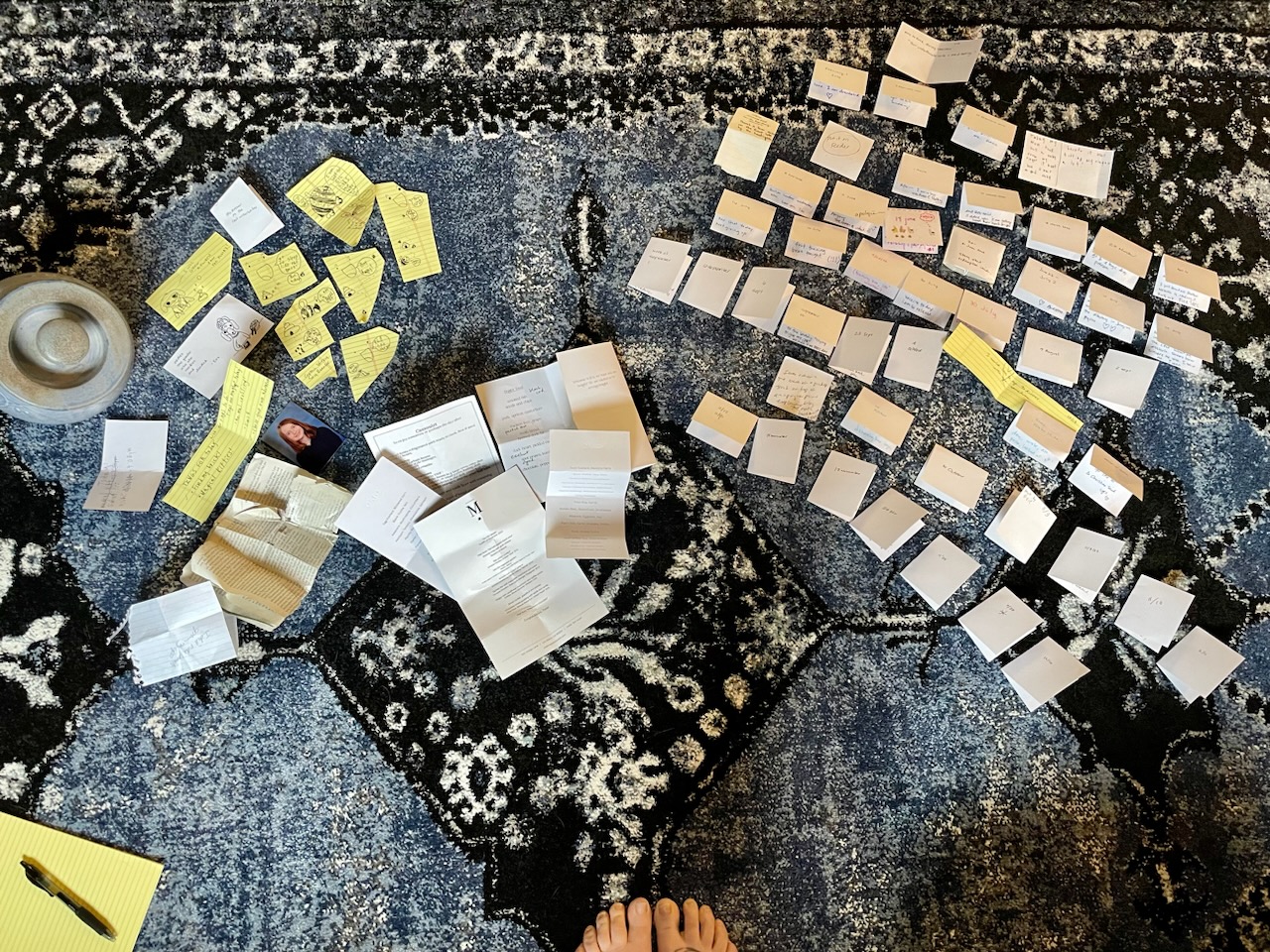“Heavily-inked chefs and cooks, culinary lone wolves, maniacal attention to detail, something’s happening here, and I don’t know what it is. Yet okay. I know what the Pacific Northwest is about. It’s about Obsession.” — Anthony Bourdain
“Ghosts are not worried by wolves.” —M.F.K. Fisher
The next night, my boyfriend drove us across town to dinner; we removed our coats just inside the warm neighborhood trattoria. The host led us to a table along the deep blue banquette. On the walls were impressionist paintings, a big desilvered mirror, shelves of books, and wine bottles with abstract line drawings on laid paper labels. A server carried a dish of squid-ink pasta in a tight glossy black twist to the table next to ours; it smelled spicy, and like the sea. We ordered, picking out the new dishes from the menu. The Baker had called while we were driving; I had not answered. Now he called again, and I silenced my phone and put it away.
The previous night, I told my boyfriend what had happened.
I said, “I thought he was doing that thing where it’s easier to confide in a stranger sometimes, but then he hit on me. I told him it made me uncomfortable and I wasn’t interested. It crossed a line. And then he read a text out loud, from his wife, which made no sense to me at all, saying she was going to tell you everything.”
My boyfriend listened. He seemed nonplussed; he was sometimes hard to read.
What had the Baker told his wife, that would prompt her to threaten to call my boyfriend? I couldn’t work it out. If his wife had told him she was leaving him, and he had taken off for the beach; and here I was, the girlfriend of their long-time friend, listening politely from a hundred miles away and saying no to his advances, what could he have told her? That I was saying yes? That seemed insane.
Now, at dinner, my boyfriend told me that the wife had called. He did not elaborate, offering only that she seemed incoherent and drunk.
“What did you tell her?” I asked.
“I said I understood that some boundaries were crossed.”
I gaped.
“You didn’t defend me?” I said. “‘Some boundaries were crossed?‘ That could be read either way. I didn’t do anything. He was hitting on me and I told him to stop. Ugh.” I crumpled back against the banquette, staring off into the middle-distance of the restaurant.
My boyfriend shrugged. Either he didn’t think it was a big deal or he wanted to stay out of it. His take seemed to be that they were drunks, and maybe a little nuts. I, on the other hand, was being harassed, and now the wife had no reason to think I wasn’t somehow complicit. He’d had the opportunity to stand up for me and protect me from these people. He had done neither.
Meanwhile, the raviolo arrived: pillows of filled pasta under prosciutto, parmesan, and little basil leaves. With the side of my fork, I sliced one raviolo in half, and out poured warm, thick bright orange egg yolk, the color of every fucking thing around me going up in flames. How dramatic. I ate dejectedly.
The Baker called again while we were eating. I ignored it. When I lifted my phone to make a note about the brown butter persimmon vinaigrette on the salad, I saw that he had also sent a text.
It read, “Sorry, but not sorry for telling you my truth.”
The morning I met the Baker for coffee, a week after speaking with him on the phone about the earthquake, marked the only time I had ever been inside his restaurant. I brought a pen and a notebook, as I always did when interviewing a chef. Cooks were working dough at big prep tables when I arrived at nine in the morning; the Baker let me in through the kitchen. He led me to a table on the front-of-house side, closed because of the pandemic, where there was seating.
He yelled, “Corner!” as we went in. “You know this chick?” He asked, flashing me his phone.
I recognized the profile picture: duck lips, big tits.
I shook my head. “Not personally.”
I had blocked her on social media when I grew tired of reading her thirsty comments on my boyfriend’s posts. My boyfriend wrote her off as harmless but let her go on; I felt better not having to watch her flirt. I did not mention any of this to the Baker.
“Tell your boyfriend to stay the fuck away from her. I had to tell her to fuck off. Twenty-five texts in a row the other night. Psychotic bullshit. And photos, ugh, the fuck. She pulled this shit on another chef. She’s disgusting. Manipulative. My wife saw it and asked if I was fucking her.”
I shrugged; it was none of my business.
I worked my fingertips under the edge of the thin plastic lid on my paper cup of coffee, and set it upside-down on the table. I wiped the coffee off my fingers and then off the table with a napkin.
The Baker sat down across from me, and told me the story of meeting Anthony Bourdain, who, several years before committing suicide, had come to Portland to film the Baker’s store for his television show. Bourdain had been awestruck at discovering the Baker made all of his dough by hand. Bourdain and his crew filmed, packed their things, and took off. The Baker was left alone in the kitchen, to clean up and close up for the night. He felt grateful, but also wished he’d had some time to socialize with Bourdain. He locked the restaurant, keys jangling in the front door, and then the gate. But when he looked up, there was Tony. Walking up the sidewalk toward him, with that loose, and long-limbed stride.
“Hey,” Tony said, “come on.”
They settled in, shoulder-to-shoulder, at the counter of a bar down the street.
“What do you drink?” Asked Tony.
“You mean hard alcohol?” The Baker scanned the shelves. He liked wine.
“Tequila.”
Bourdain called over the bartender and asked for a bottle from the top shelf. “The one behind that,” he said, and then, “Yep.”
The bartender handed him the new, unopened bottle.
Tony twisted off the top and threw it in the trash.
After coffee, before I left that day, the Baker said, “I’d like to do that with you sometime: throw away the lid.”
“Thank you,” I told him. I was flattered. “I don’t drink anymore, though.”
I rewatched the episode later that week. In it, Bourdain walks down the block outside the Baker’s store.
He narrates, “Obsession can be a strange, and sometimes beautiful thing.”
The footage cuts to the Baker, who, with dough clenched in one hand, picks up a pint of beer with the other, and chugs it.
The Baker had called from the beach house on Saturday night.
He called Sunday night, while my boyfriend and I ate Italian food.
He called Monday, while I was working.
I did not ever answer. I texted back short replies: I was with a client; I was cooking for my daughter. He texted links to pieces of music he wanted me to listen to. I did not want to talk to him. I did not trust him. I did not listen to the music. What had he told his wife?
Tuesday night, while my daughter was throwing a tantrum, screaming and crying and stomping her feet, the Baker called twice. Both times I muted and ended the call; I needed to be present for my child. I turned off the sound on my phone. A minute later, a text from the Baker appeared on the screen.
“Wanted to say goodbye. Word will spread fast. Love you Porkchop.”
I did not respond.
Author: `aqaq`
Tasia Bernie is an essayist, and editor of FeederPDX.com. She enjoys used bookstores, offal, and hard laughter. She is a very good eater. She lives with her daughter and two orange cats in Portland, Oregon.




